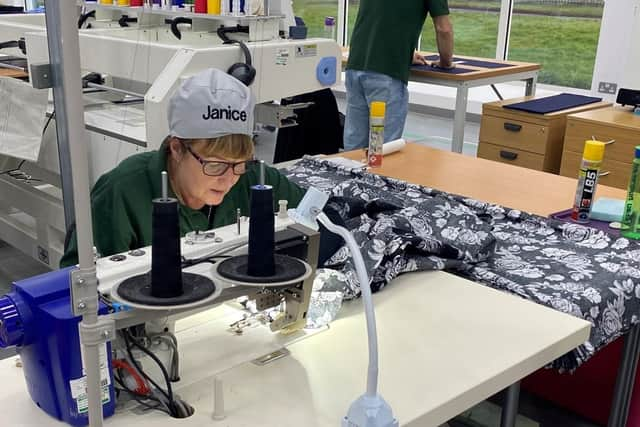Staff at Northumbria Healthcare's Seaton Delaval factory produce welcome packs for international nurses
and live on Freeview channel 276
The factory has been making welcome packs to help new nurses adjust to the North East, which include items like gloves, a hat, scarf, thermal mug, and bedding.
Northumbria Healthcare NHS Foundation Trust, which runs the manufacturing facility, has hired 75 nurses from India, Zimbabwe, and Swaziland into its hospitals in just over a year as part of an international hiring scheme.
Advertisement
Hide AdAdvertisement
Hide AdThe hub is known for creating PPE, but it can also create non-clinical products.


Product development manager Michelle Triplow-Jones said: “We are delighted to have been a part of helping the international nurses feel welcomed to the trust.
“Moving across the world to come and work in our hospitals must be a big adjustment so producing these bedding sets is a small gesture from us to show our appreciation and welcome them to their new home in the North East of England.”
The packs were funded by Bright Northumbria Healthcare Charity, the official charity of the trust.
Advertisement
Hide AdAdvertisement
Hide AdRobert Graham, head of the charity, said: “It is great that our warm welcome packs have made such a big impact. Our main aim when developing them was to be able to provide the nurses with a sense of belonging and we have been successful in doing that.”
Jenny Locsin, lead nurse for international recruitment, added: “It has made a great difference in making them feel welcomed and part of the Northumbria family.
“They have also expressed their gratitude as it has helped them to adapt to the rainy and colder climate in the North East.”